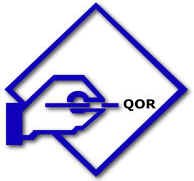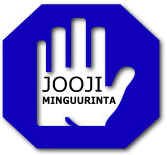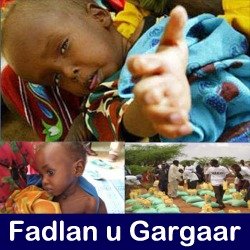Somalia under UN Transitional Administration
Mr. Mohamud M Uluso
mohamuduluso@gmail.com
With this month’s (October) transition from non- extendable five (5) years’ term of Transitional Federal Government (TFG) to two (2) years’ term of Transitional Federal Unity Government (TFUG), Somalia lost the right for self-Government and fell under the authority of United Nations Transitional Administration -Neo-Trusteeship or peacekeeping without consent. The move has been made possible by the last two complementary policy traps of Bush Administration to deny Obama Administration the opportunity for significant policy change in the Horn of Africa. The traps were the hastily formed TFUG in Djibouti and the Security Council Resolution S/Res/1863/2009 that anticipated the establishment of UN peacekeeping operation, an euphemism for Transitional Administration. This also endorses the views of the experts who have argued that the United States and other Western Countries must support a United Nations Transitional Administration in countries where there is no functioning and legitimate government but that there is an international and regional consensus for the creation of Neo-Trusteeship. After brutal failed invasion, Ethiopia maliciously and tirelessly continues to campaign for AU-UN Occupation of South-Central Somalia. Therefore, understanding and taking stock of the implications of this juncture is very critical for Somalia’s future.
The lost sovereignty is marked by the automatic repeal of the Transitional Federal Charter (TFC) in favor of Djibouti Agreement (DA) signed between the TFG and Alliance for Re-Liberation of Somalia (ARS-D) and by the formation of two committees- the Joint Security Committee and the High Level Political Committee- both chaired by the United Nations. The local counterparts play subordinate roles.
Somalia was candidate for UN Trusteeship rule since October 1992, when former UN Secretary General, Boutros Boutros Ghali proposed the idea to the UN Security Council. At that time, the Council declined to formally approve the idea. But the emergency of major threats to international security because of large number of collapsed or rogue states, fierce resurgence of Political Islam, genocide, and calls for human security in response to catastrophic humanitarian crisis gave way an intense theoretical political and legal debate which produced large body of knowledge and generated rationale for international intervention in sovereign states on grounds of international security and human security. The risks, abuses and distortions inherent in foreign interventions have been forcefully raised.
The inability of the Somalis to care their shared destiny and primordial identity, culture, values and land has been used against them and it remains an excuse for the neo-trusteeship. In a Speech of June 19, 2009 at Chatham House in London, the Special Representative of the UN Secretary General (SRSG) stated that most of the problems in the Somalia are related to leadership and the Elite- be they political, intellectual and business- have taken the population, the agenda and everything hostage. He hailed articles 8 and 9 of AD prescribing the formation of Joint Security Committee for security sector reform and the High Level Political Committee for national policy coordination and implementation. A Commission for drafting Federal Constitution is also chaired by the UN.
The SRSG added, “It is very difficult to run a country or to be a candidate for running a country if you don’t have the right skills. This was visible in Djibouti and is the case with the opposition who are from young generation…… The High Level Political Committee will be a good preparation for the political management of a future Somalia…The committees will not be parallel government but something that helps address national issues and whose members should be seen as members of a leading group.” He asked: “Why should the Central Bank be under the control of the minister of finance? It is good that for the opposition to gain experience of the national central bank, where there is a problem of printing fake money.” However, it is important to note that at the end of the Djibouti process, there were no two parties sharing power. Instead, TFG became Transitional Federal Unity Government (TFUG) and the opposition leaders took over the power to run the country.
Besides UN Trust Fund and the AMISOM forces, the spring-board for the UN Transitional Administration is UN Somalia Aid Coordination Body (SCAB) – International shadow government based in Nairobi, Kenya- , established after the collapse of Somali State and chaired by UNDP. SCAB manages the annual Consolidated Appeal Process (CAP) for Somalia. The 2009 CAP is $ 919 million compare to $ 662 million of 2008.
The Report of the Secretary General S/2009/210 details the short and long term strategy, goals and policies for implementing Security Council Resolution S/Res/1863/2009. On October 2, the Secretary General submitted Report S/2009/503 that falls far short of providing a right picture of the human tragedy witnessed immediate after the UN-led Djibouti peace initiative and ignores the far greater crimes and systematic destruction of livelihood of the local population, corruption and poor governance in public domain associated with UN supported parties. The call for reconciliation on the basis of DA is a game as long as the operative policy is that the opposition must join ARS-D Government or be completely isolated.
The report remains silent about the strategy of African Union Mission for Somalia (AMISOM) to fight insurgents by terrorizing the civilians in order to displace them so that Mogadishu remains empty. AMISOM’s recent compensation for killed camels in contrast to the standard denial of shelling, killing, wounding and displacing innocent civilians and destroying their properties has deeply offended and angered the local population who composed poems decrying AMISOM’s abuses. The dismissive, abusive and accusatory comments of AMISOM’s Spokesman are symbol of the hostile relationship between AMISOM and the public in Mogadishu.
Despite the full knowledge of the absence of command and control security structure as well as political oversight capacity inside Somalia, the United Nations and International Community are spending millions of dollars in recruiting and training in multiple foreign countries soldiers of unknown citizenship, loyalty and selection criteria. Former Somali Military Officials who met in Washington, D.C had advised against such process.
Massive extra CAP resources are allocated to security and development of physical infrastructure like pre-fabricated building, armored vehicles, fuel supply system, food refrigeration and distribution system, modern communication system and compensation. Recently, TFUG signed an agreement with US Private Security Firm for protection and training of forces. The efforts could be part of the establishment of Green Zone for the UN Transitional Administration in Mogadishu.
In contrast, the Humanitarian Agencies (WFP, UNICEF, WHO, UNHCR) face huge shortfalls of humanitarian emergency assistance needed for 1.5 million Internally Displaced People since early 2007 and about 3.8 million people or 50 % of the Somali population. More worrisome, almost all displaced and vulnerable people are concentrated in the areas controlled by the opposition distrustful of UN’s role in Somalia. The wave of refugees in neighboring countries, high numbers of people drowning everyday in the sea or languishing in foreign prisons are merely statistics.
The United Nations directs the local counterparts from the overlapping Administrations of Somaliland, Puntland and Sool, as well as from GalMudug and Himan and Heeb Administrations, Ahlu Sunna Wal Jama Authority, TFUG, Civil Society and whoever else comes along. Whether it is a deliberate obfuscation or genuine confusion about the ongoing mayhem in Somalia, incomplete narratives constitute major obstacle to long lasting peace and stability in Somalia. Peace and sustainable governance in Somalia depend on genuine conflict resolution and peace-building centered on the people and by the people.
Mr. Mohamud M Uluso
mohamuduluso@gmail.com
Disclaimer: The opinions expressed here are those of the authors and do not necessarily reflect the opinions of this website.




































must of this comment are true but who and who will change the sitution.
UN become one of the somali parts as wel as INGO’s